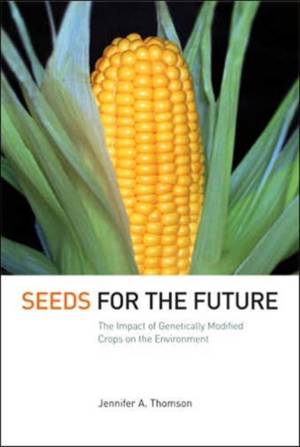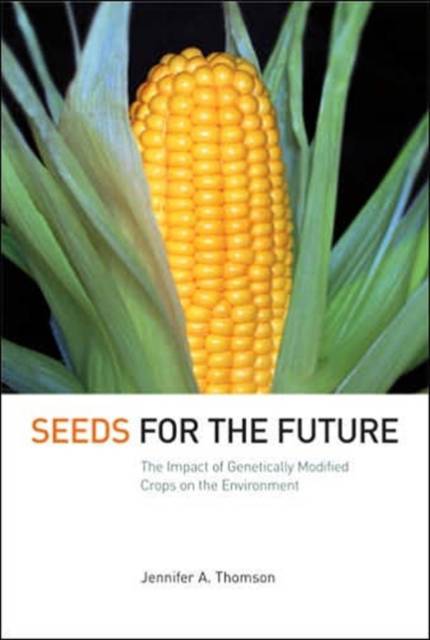
- Afhalen na 1 uur in een winkel met voorraad
- Gratis thuislevering in België vanaf € 30
- Ruim aanbod met 7 miljoen producten
- Afhalen na 1 uur in een winkel met voorraad
- Gratis thuislevering in België vanaf € 30
- Ruim aanbod met 7 miljoen producten
Seeds for the Future
The Impact of Genetically Modified Crops on the Environment
Jennifer ThompsonOmschrijving
Plants have long been genetically modified through crossbreeding and other basic agricultural techniques to make crops more resilient, nutritious, and profitable. In recent decades, however, advances in genetic engineering--including the ability to blend genetic material from animals with that of plants--have allowed farmers to grow crops that resist insect pests, weeds, viruses, and drought; provide increased iron or beta carotene; deliver vaccines and antibodies; reduce common allergens and pollutants; and augment marketable qualities such as delayed ripening. The complicated scientific, environmental, legal, cultural, and ethical issues surrounding these crops are being hotly debated all over the world. In Seeds for the Future, an internationally respected molecular geneticist and food researcher, Jennifer A. Thomson, describes how these crops are developed, distributed, and regulated.
Specificaties
Betrokkenen
- Auteur(s):
- Uitgeverij:
Inhoud
- Aantal bladzijden:
- 176
- Taal:
- Engels
Eigenschappen
- Productcode (EAN):
- 9780801473685
- Verschijningsdatum:
- 15/02/2007
- Uitvoering:
- Paperback
- Formaat:
- Trade paperback (VS)
- Afmetingen:
- 157 mm x 231 mm
- Gewicht:
- 331 g

Alleen bij Standaard Boekhandel
Beoordelingen
We publiceren alleen reviews die voldoen aan de voorwaarden voor reviews. Bekijk onze voorwaarden voor reviews.











